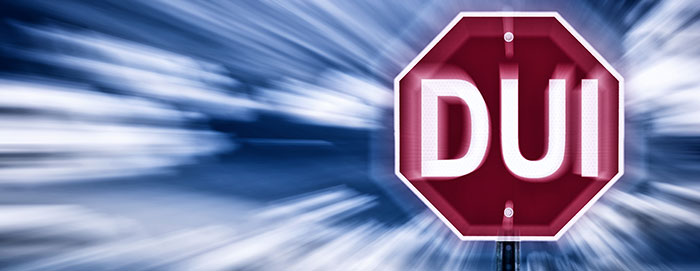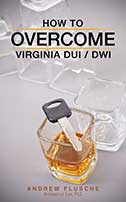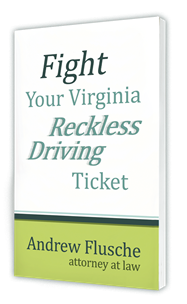Virginia DUI Defense Lawyer
If you are charged with a Virginia DUI or DWI, you need to learn about the offense. And you need to consult with a skilled Virginia DUI Defense lawyer.
Even if this is your first offense, you are still facing a significant fine, loss of your driver’s license, and possible jail time.
A DUI / DWI case involves many legal elements. This summary explains three ways the Commonwealth of Virginia can prove that you were intoxicated. Most cases combine one or more different factors to meet the government’s burden of proof.
Virginia DUI Laws
In Virginia, when your blood alcohol content is 0.08% or higher and you operate a motor vehicle (including boats and other watercraft) you are legally considered to be operating under the influence (DUI/DWI).
In some cases you may be judged to be operating a motor vehicle under the influence with a lower blood alcohol content if your ability to operate the vehicle is impaired.
Furthermore, if your ability to operate a motor vehicle is affected because of the influence of any drug, you may be subject to the same legal penalties as driving under the influence of alcohol.
In Virginia, the laws for driving under the influence (ie. DUI or DWI) are codified in §18.2-266. The statute reads:
It shall be unlawful for any person to drive or operate any motor vehicle, engine or train (i) while such person has a blood alcohol concentration of 0.08 percent or more by weight by volume or 0.08 grams or more per 210 liters of breath as indicated by a chemical test administered as provided in this article, (ii) while such person is under the influence of alcohol, (iii) while such person is under the influence of any narcotic drug or any other self-administered intoxicant or drug of whatsoever nature, or any combination of such drugs, to a degree which impairs his ability to drive or operate any motor vehicle, engine or train safely, (iv) while such person is under the combined influence of alcohol and any drug or drugs to a degree which impairs his ability to drive or operate any motor vehicle, engine or train safely, or (v) while such person has a blood concentration of any of the following substances at a level that is equal to or greater than:…read more
Virginia DUI / DWI Penalties
| DUI Offense | Classification | Maximum Jail | Minimum Jail | Maximum Fine | License Suspension Duration |
| 1st offense | Class 1 misdemeanor | 12 months | n/a | $2,500 | 12 months |
| 2nd in 10 years | Class 1 misdemeanor | 12 months | 10 days | $2,500 | 36 months |
| 2nd in 5 years | Class 1 misdemeanor | 12 months | 20 days | $2,500 | 36 months |
| 3rd in 10 years | Class 6 felony | 5 years | 90 days | $2,500 | 36 months |
| 3rd in 5 years | Class 6 felony | 5 years | 180 days | $2,500 | 36 months |
Conviction for DUI first offense
- Mandatory, minimum $250 fine
- Driver’s license revocation for one year
Conviction for DUI second offense
- Mandatory, minimum $500 fine
- Driver’s license revocation for three years
- Possible jail term up to one year
Conviction for DUI second offense within ten years of prior offense carries the following additional penalty
- Mandatory, minimum ten-day jail term
Conviction for DUI second offense within five years of prior offense carries the following additional penalty
- Mandatory, minimum 20-day jail term
Three DUI convictions within a ten-year period
- Mandatory, indefinite driver’s license revocation
- If your driving privilege is revoked for a first or second DUI offense conviction and you receive another DUI, the license revocation period will run consecutively with the existing revocation period.
Conviction for DUI third offense or DWI felony
- Mandatory, minimum $1,000 fine
- Mandatory indefinite driver’s license revocation
- Prosecution as a Class 6 felony
Conviction for DUI third offense within five years carries the following additional penalty
- Mandatory, minimum six-month jail term
Conviction for DUI third offense within ten years carries the following additional penalty
- Mandatory, minimum 90-day jail term
- Permanent forfeiture of your vehicle (if you are the sole owner)
Conviction for DUI fourth or subsequent offense
- Mandatory, minimum one-year jail term
BAC of 0.15% and not higher than 0.20% at the time of arrest
- First offense carries a mandatory, minimum five-day jail term in addition to all other penalties
- Second offense within ten years carries a mandatory, minimum ten-day jail term in addition to all other penalties
BAC of 0.20% or higher at the time of arrest
- First offense carries a mandatory, minimum ten-day jail term in addition to all other penalties
- Second offense within ten years carries a mandatory, minimum 20-day jail term in addition to all other penalties
Video: Virginia DUI
Felony DWI
In Virginia, there are several ways to be charged with a Felony DWI (or DUI). If you have previous DWI convictions, you may be charged with a Felony DWI if you are stopped for DWI again.
At the time of the traffic stop, the police may not know that you have previous DWI convictions. Often, felony charges are brought by prosecutors after a review of the driving record. A DWI may begin as a misdemeanor, but it is possible that the charge may be changed to a felony if you have previous DWI convictions.
It is important to understand the different Felony DWI offenses and their punishments. A conviction for any of the offenses carries mandatory minimum jail time, fines and a loss of driver’s license, depending upon the severity of the charge.
Third DWI within 10 Years
This offense is a Class 6 Felony. A Class 6 Felony is punishable by term of imprisonment of not less than one year nor more than five years, or in the discretion of the jury or the court trying the case without a jury, confinement in jail for not more than 12 months and a fine of not more than $2,500, either or both.
Conviction for this offense carries a mandatory minimum 90 day jail sentence, a $1,000 fine and suspension of your driver’s license for 3 years.
Third DWI within 5 Years
This offense is a Class 6 Felony. Conviction for this offense carries a mandatory minimum 6 month jail sentence, a $1,000 fine and suspension of your driver’s license for 3 years.
Fourth DWI within 10 Years
This offense is a Class 6 Felony. Conviction for this offense carries a mandatory minimum one year jail sentence, a $1,000 fine and suspension of your driver’s license for 3 years.
Felony Driving Revoked
For Third and Fourth offense DWI’s, prosecutors regularly charge the additional offense of Felony Driving Revoked under certain conditions. This charge is on top of the DWI offense. Felony Driving Revoked is punishable by a mandatory minimum one year jail sentence.
DWI Felony Conviction After Previous Felony Conviction
This charge applies to a DWI offense that occurs after a person has been convicted of a Felony DWI in the past. This offense is a Class 6 Felony. Conviction for this offense carries a mandatory minimum one year jail sentence, a $1,000 fine and suspension of your driver’s license for 3 years. Note that this charge does NOT require the previous DWI felony conviction to be within 10 years!
Dangerous Driving Behaviors that can lead to a DUI stop
Erratic driving behavior or unsafe driving is usually the first thing an officer notices about you.
While this is normally used to show that the officer had probable cause to make a traffic stop, it can also be used as evidence of intoxication.
If the officer (or other witnesses) testify that you were weaving in and out of lanes, driving erratically, or some other odd behavior, it is important to see if there is a way to rebut the testimony.
Were you really driving erratically? How is the officer sure it was your vehicle? Was there some reason other than alcohol that explains your behavior? These, and other questions, are points to cover with your attorney.
Field sobriety tests (FSTs)
Like your driving behavior, field sobriety tests have a dual purpose: determining whether there is probable cause for an arrest and proving that you were intoxicated.
What many people don’t know is that field sobriety tests are not indisputable.
Only four tests have been scientifically studied to determine if they actually indicate intoxication: heel to toe, walk and turn, one leg stand, and horizontal gaze nystagmus.
Even these tests must be conducted using the same procedures as the studies, or there is no way to know if they are accurate.
Depending upon the officer’s training, what happened at the scene, and the specific tests used, there may be effective ways to cast doubt upon or have the tests excluded from evidence.
Recent Case Result: Judge Rules DWI Arrest Illegal
(Cases depend upon unique facts. Past cases do not guarantee future outcomes.)
THE STORY:
Brett called our office for a serious DWI where he was facing the possibility of mandatory jail time. We sprung into action to review the evidence and develop a game plan for trial.
Fortunately, Brett was smart and exercised his rights on the side of the road. He politely declined to participate in the officer’s field sobriety exercises, and he declined to take the preliminary breath test. None of those tests are mandatory in Virginia, and Brett successfully withstood the officer’s pressure to do them.
At trial, we made a motion to suppress the arrest due to lack of probable cause that Brett was actually driving under the influence. The Commonwealth played the body camera video in attempt to show that Brett appeared intoxicated. Since Brett was calm and collected, and because he ultimately refused the roadside tests, the judge ruled that the officer did NOT have probable cause to arrest Brett.
CASE OUTCOME:
Thanks to our successful motion to suppress the arrest, the Commonwealth ended up with no evidence that Brett was under the influence of alcohol, and the judge dismissed the DWI.
BREATH AND BLOOD ALCOHOL TESTS
One of the most certain ways for the Commonwealth to prove a Virginia DWI charge is with an approved breath or blood alcohol analysis. But these tests are not perfect.
There are a number of factors to scrutinize closely and examine at trial, such as:
- Testing procedures – Each alcohol testing method must comply with specific procedures set forth by the Virginia Department of Forensic Science. If these procedures are not done correctly, it can call into doubt (or even invalidate) the results of the alcohol test.
- Licensing – The breath test operator must be properly trained and licensed. Licensing problems can invalidate the breath test certificate.
- Certificate errors – The actual certificate of breath alcohol analysis can be entered as evidence of your intoxication, but only if it is accurate. Errors on the face of the certificate might get it excluded from your trial.
If the Commonwealth successfully introduces evidence of your blood or breath alcohol content, that does not automatically mean you were intoxicated.
It simply means that the Commonwealth is entitled to the presumption that you were intoxicated. Your attorney can rebut (dispute) the presumption if there is affirmative evidence that you were not intoxicated at the time.
Recent Case Result: DWI Dismissed After Officers Disagree
(Cases depend upon unique facts. Past cases do not guarantee future outcomes.)
THE STORY: Aaron was pulled over late one night on his way home from work. A backup officer arrived to perform field sobriety tests, and that officer did not think Aaron was impaired. The initial officer disagreed, did his own field tests, and arrested Aaron for DWI.
At trial, we argued that the officers’ disagreement about even arresting Aaron shows that there is doubt as to whether or not he was impaired. The judge unfortunately disagreed and convicted Aaron of DWI.
But we didn’t stop fighting! We appealed Aaron’s case for a new trial in Circuit Court. We argued again that the judge should dismiss the DWI since the two officers could not agree on the side of the road. If an officer who looked Aaron in the face and smelled his breath didn’t think he was impaired, the judge should not find him guilty beyond a reasonable doubt.
CASE OUTCOME: Victory! It took two trials and many court appearances, but we finally got the Circuit Court judge to rule in Aaron’s favor. He dismissed the DWI!
Can You Refuse a Blood Test for DUI?
In Virginia if you are arrested for suspicion of DUI the law requires that you consent to a breath or a blood test to determine the alcohol content of your blood.
If you refuse, you will be charged with an offense for refusal. However, what happens if you refuse? Can the officer still get your blood?
Yes. If you refuse in Virginia the officer can still try to get your blood by way of a search warrant.
Under this procedure the officer has to go to the magistrate and establish probable cause that you are in fact intoxicated and that taking your blood can turn up evidence to prove that.
Through the search warrant the officer can seek to seize your blood for testing to determine the alcohol content inside your body.
Refusing may not have the effect that you’re hoping of keeping the Commonwealth from gathering evidence against you. They may still be able to gather evidence to prove what’s in your blood at the time of driving.
Note that a search warrant case has its own unique defenses if you are charged with DUI at the end. There different statutory requirements that the Commonwealth has to meet for the search warrant to be valid.
Then they still have to prove that there was something prohibited in your blood to prove an actual DUI.
This is why for any DUI, and especially a blood search warrant case, you need to talk an experienced DUI attorney like myself, so we can over the basics of your case and work on possible defenses together.
Recent Case Result: Fought the Arrest and Won the DUI!
(Cases depend upon unique facts. Past cases do not guarantee future outcomes.)
THE STORY: My client was charged with DWI and refusal. This was his second offense, so the stakes were high – including six years of license suspension and twenty mandatory days of jail.
The deputy pulled my client over because the registered owner of the vehicle did not have a valid license. But even though the deputy quickly confirmed that my client was NOT the owner, and my client DID have a valid license, the deputy thought he smelled alcohol in the vehicle. A DUI investigation ensued.
My client was smart enough to refuse the deputy’s request to complete field sobriety tests. These tests are always optional, and it’s best to refuse them! But the deputy chose to arrest my client simply based on the odor of alcohol.
We put the case on for trial and made a motion to suppress the arrest due to the lack of probable cause that my client was under the influence of alcohol. This violated my client’s Fourth Amendment rights.
The judge agreed, and dismissed all charges!
CASE OUTCOME: NOT Guilty. The judge dismissed the DWI and refusal charges against my client. If convicted, he would have lost his driver’s license for SIX years and gone to jail for several weeks.
Can I legally Refuse a Roadside DUI/DWI test?
Did you know that you CAN legally refuse road-side DUI / DWI tests, such as the walk-and-turn test and the handheld breath test?
Those tests can significantly hurt your case at court, and it might help your case if you do refuse to perform them. However, in Virginia, you must do the breath test at the station, or else you could be charged with refusal.
What Are Virginia Drinking and Driving Laws?
What are Virginia Drinking and Driving Laws? Virginia has many laws that cover the intersection of driving and alcohol. Drinking and driving is just one of many activities that Virginia law criminalizes.
Virginia doesn’t actually have an open container statute that prohibits you from just simply having an open container in a vehicle.
However, we do have a statute that prohibits drinking while driving. That statute says that no one shall operate a motor vehicle while drinking.
The interesting part of the statute is that if you have an open container in the vehicle, the Commonwealth can get a presumption in court that you in fact were drinking and driving. This means Virginia does sort-of have a prohibition on open containers.
Drinking and Driving, or DUI?
But drinking and driving can also refer to driving while intoxicated (DWI or DUI). This is obviously a much worse offense. Simply drinking while driving, if you’re not drunk, in Virginia is a class 4 misdemeanor.
It’s not even a jailable offense, and the judge cannot suspend your driver’s license.
What is the Presumption of Guilt in Virginia DUI Cases?
Virginia takes DUI seriously, and the law gives the Commonwealth advantages in proving their case. The biggest advantage they get is the “presumption” that you are intoxicated if your blood alcohol content is .08 or higher.
While Virginia case law (under Yap v. Commonwealth) actually holds that this “presumption” is really a “permissive inference,” which means that the judge or jury is free to reject the conclusion that you are in fact intoxicated, in practice, that’s not what happens.
Essentially, if the Commonwealth can get a .08 blood or breath certificate into evidence against you, most judges will find that’s enough to convict you of DUI.
There may be other excellent defenses in the case, but arguing about the certificate is sadly an uphill battle due to this presumption in the law.
On the other hand, if the certificate shows a .05 or lower blood alcohol content, WE get a presumption that you are NOT intoxicated. This can be extremely useful in defending some cases.
What Happens If You Get A DUI Under 21?
If you are under 21 and charged with Virginia DUI, you could be facing one of two charges:
- Driving after illegally consuming alcohol, referred to as “baby DUI”, or
- DUI.
It’s important to first understand what you’re accused of doing wrong so that we can approach your defense correctly.
Baby DUI cases are fairly simple for the Commonwealth to prove, since they just need to show that you were driving and you had a .02 or higher blood alcohol content.
As you can see, it’s an extremely low level, compared to .08 for adult DUI.
Oddly enough, the punishment for juvenile DUI and adult DUI is basically about the same. Both cases would be looking at 1 year loss of your license and a misdemeanor conviction.
The big difference is that VASAP is not required by law for underage DUI.
Client Testimonials
Further reading about Virginia DWI
- I recently launched a new site, FightVirginiaDUI.com, which was created to guide you through the Virginia DUI process. Check it out!
- Virginia DWI and Virginia DUI are the same charge. I have a video about that here: DUI vs DWI in Virginia.
These are my most popular articles on Virginia DUI defense:
- Is VASAP Required for A Virginia DUI / DWI?
- What Is A Wet Reckless Charge in Virginia?
- DUI Checkpoints in Virginia
- Can You be Charged with DUI in Virginia if You Blow Below a 0.08 on the Breath Test?
- What Happens When You Get a DWI in Another State?
You can read more articles and watch videos in my DUI archives. You can also read other traffic defense articles on my blog. Please contact me today so I can be your Virginia DUI defense lawyer.





